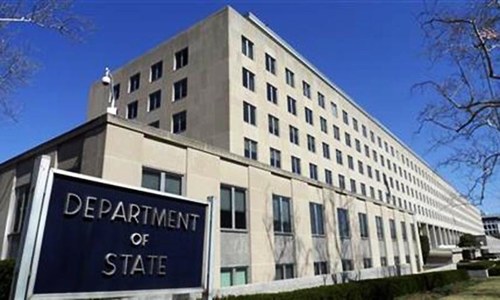WASHINGTON: Pakistan is 46th on a list of 146 countries that face significant money laundering/terrorism financing risks, says a recent report by a Swiss institute.
The Basel Institute on Governance released the report last month but it caught the attention of the South Asian media on Friday when an official US broadcasting service, VOA Urdu, published excerpts from the study.
According to the report, the 10 countries with the highest money laundering risk are Iran, Afghanistan, Guinea-Bissau, Tajikistan, Laos, Mozambique, Mali, Uganda, Cambodia and Tanzania.
The three lowest-risk countries are Finland, followed by Lithuania and Estonia, the same as last year.
China is 51st with 6.53 points and the United States 116th with 4.85 points.
The greatest improvements since last year have been made by Sudan, Taiwan, Israel and Bangladesh. The countries that deteriorated most severely in their scores this year are Jamaica, Tunisia, Hungary, Uzbekistan and Peru.
Swiss study shows that Bangladesh has improved its anti-money laundering efforts
With 8.60 out of 10, Iran tops the list of 50 highest-risk countries, followed by Afghanistan with 8.38 points. Guinea-Bissau is third with 8.35 points and Tajikistan fourth with 8.28 points.
There are four Muslim countries among the 10 highest risk countries — Iran, Afghanistan, Tajikistan and Mali, which is seventh with 7.97 points. Saudi Arabia is 93rd with 5.43 points.
In South Asia, Afghanistan is the highest-risk country followed by Nepal with 7.57 points, Sri Lanka with 7.15 points, Pakistan with 6.64 points, Bangladesh with 5.79 points and India with 5.58. Last year, Bangladesh had 6.4 points while Pakistan had 6.62. India is 88th on the list.
This shows that Bangladesh has improved its anti-money laundering efforts.
Myanmar, which also faces significant religious and ethnic violence, is 13th with 7.58 points.
The Basel Institute’s Anti-Money Laundering Index is an annual ranking, which assesses 146 countries for money laundering/terrorism financing risks. This is the sixth annual release of the Basel AML Index, which remains to date the only research-based risk rating of countries in this field issued by an independent non-profit institution.
Since its first release in 2012 the index has not seen significant changes in terms of countries occupying the top ten risk positions. Yet, the 2017 Basel AML Index shows that the average country risk level has been deteriorating at least during the last three years.
While the global average risk scores were 5.82 in 2015 and 5.85 in 2016, the average risk score this year is equal to 6.15 (on a scale of 0 = low risk to 10 = high risk).
Correction: An earlier version of this article incorrectly stated the US rank to be 30th.
Published in Dawn, September 9th, 2017














































